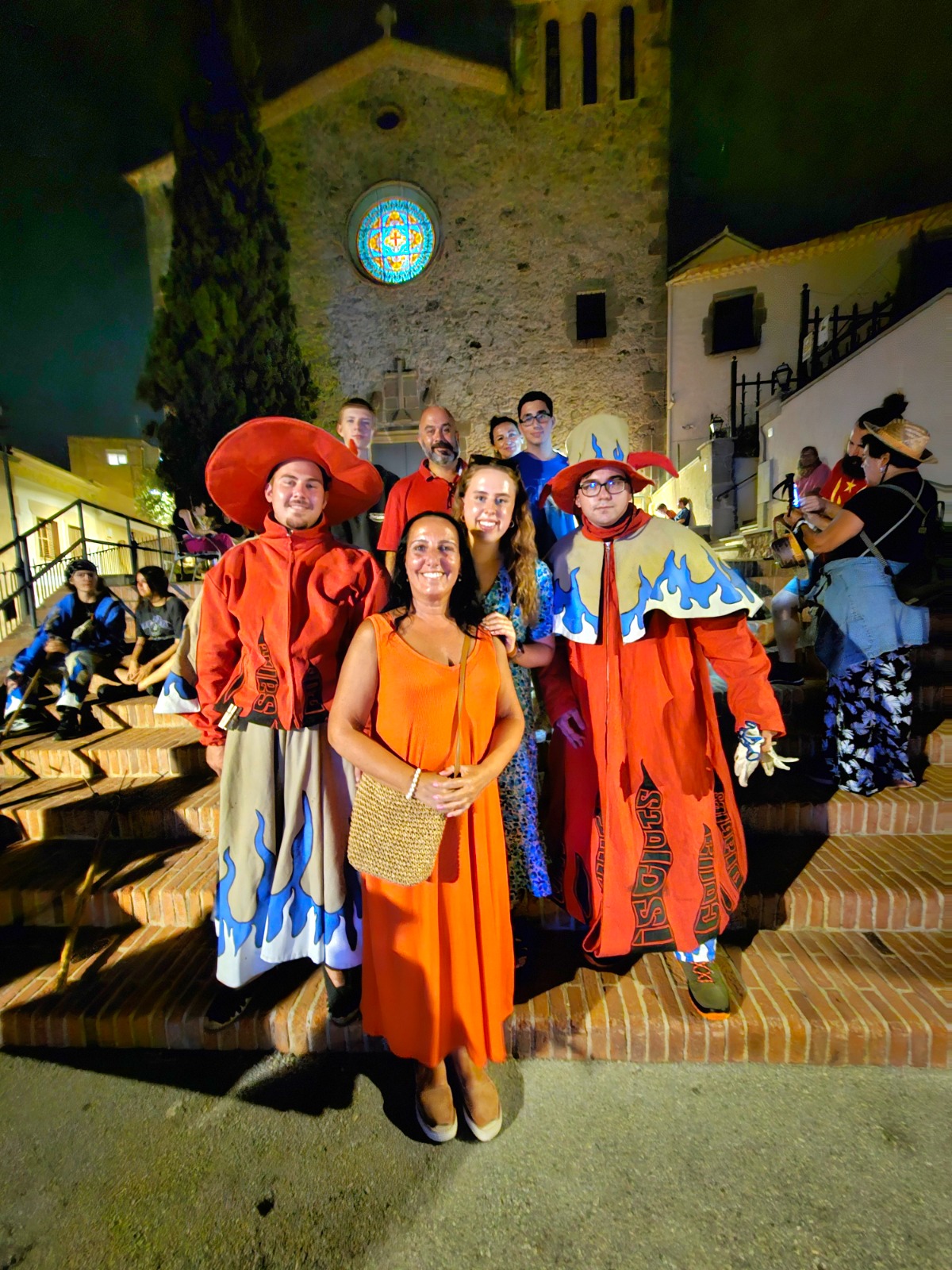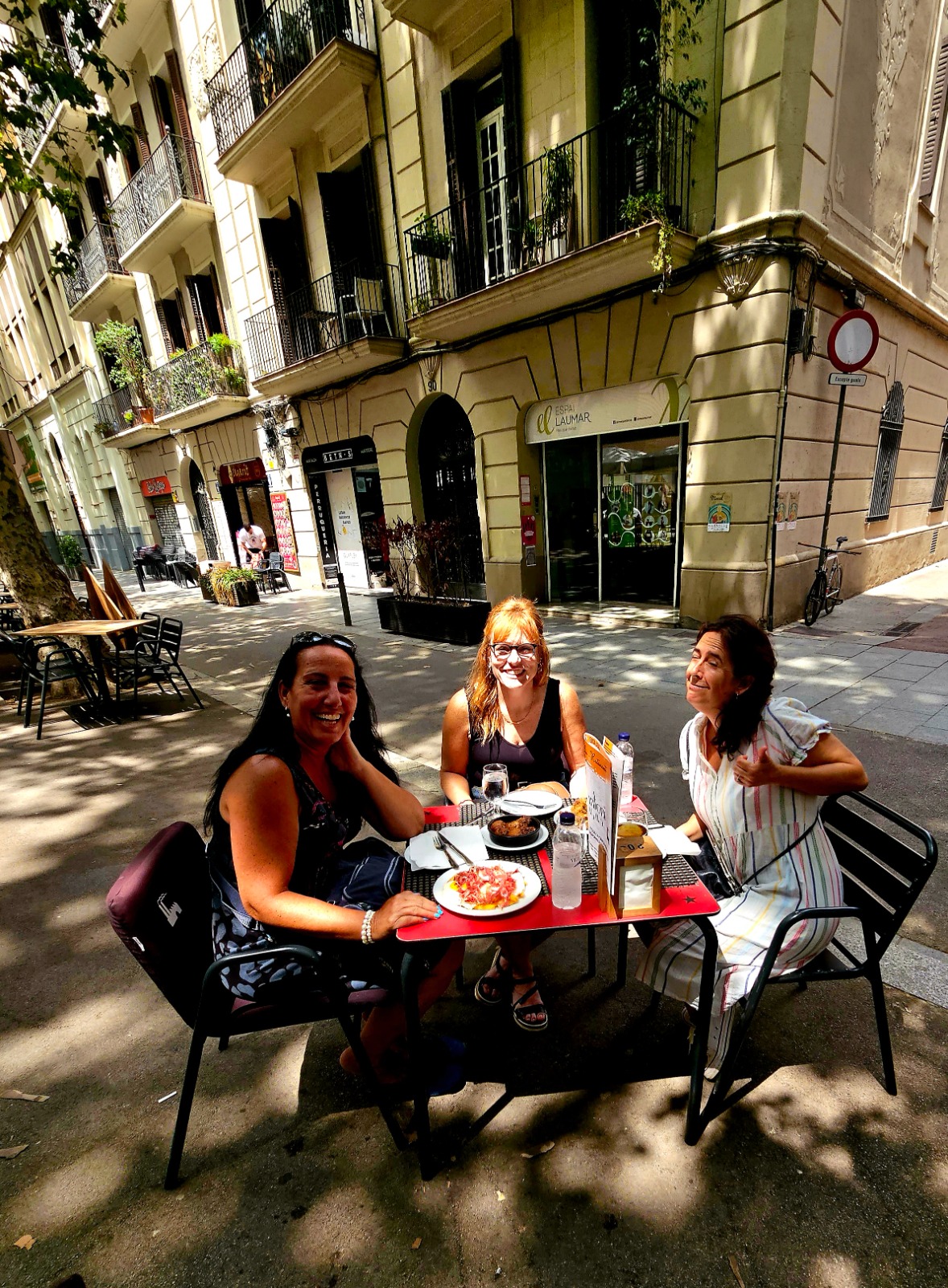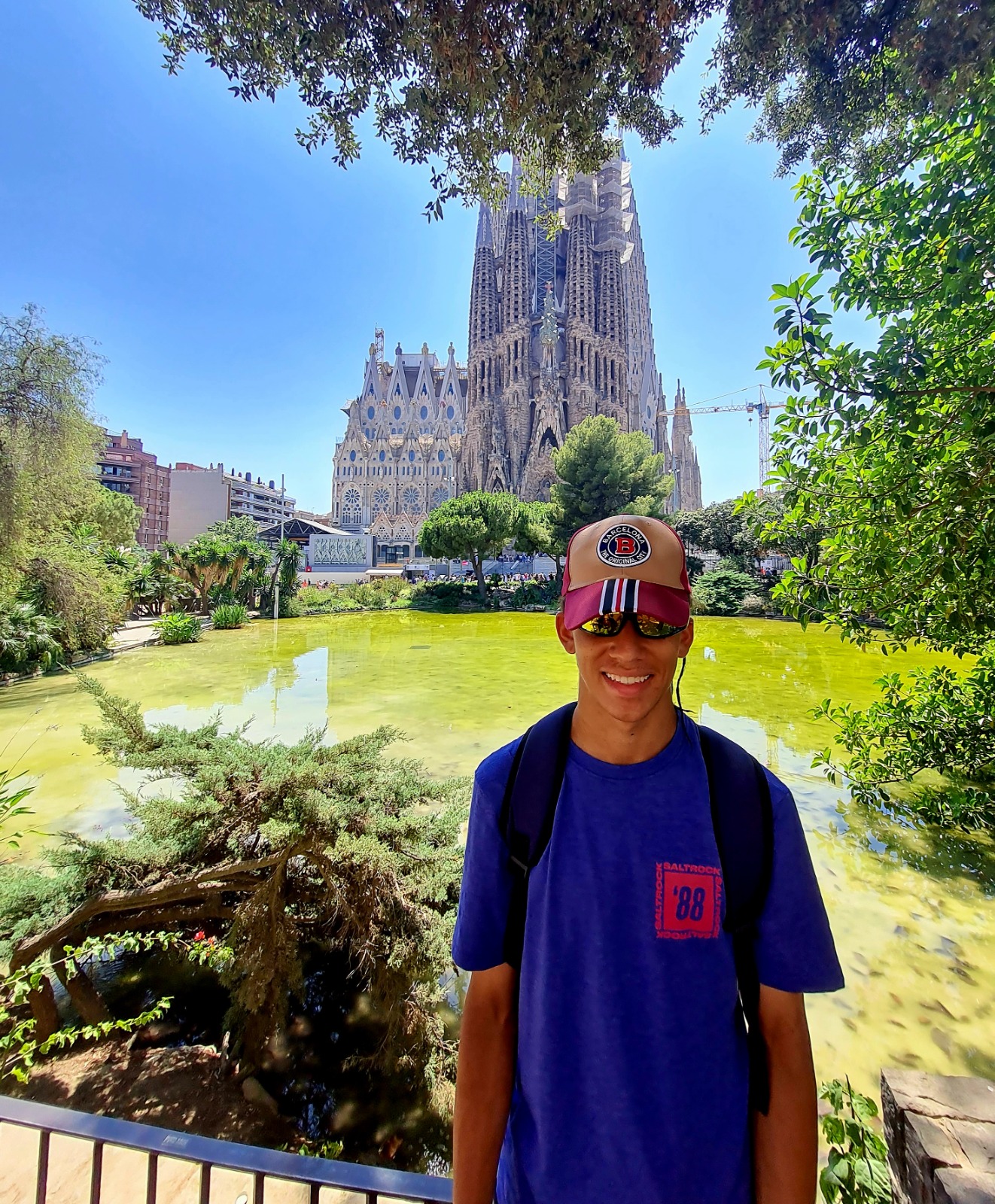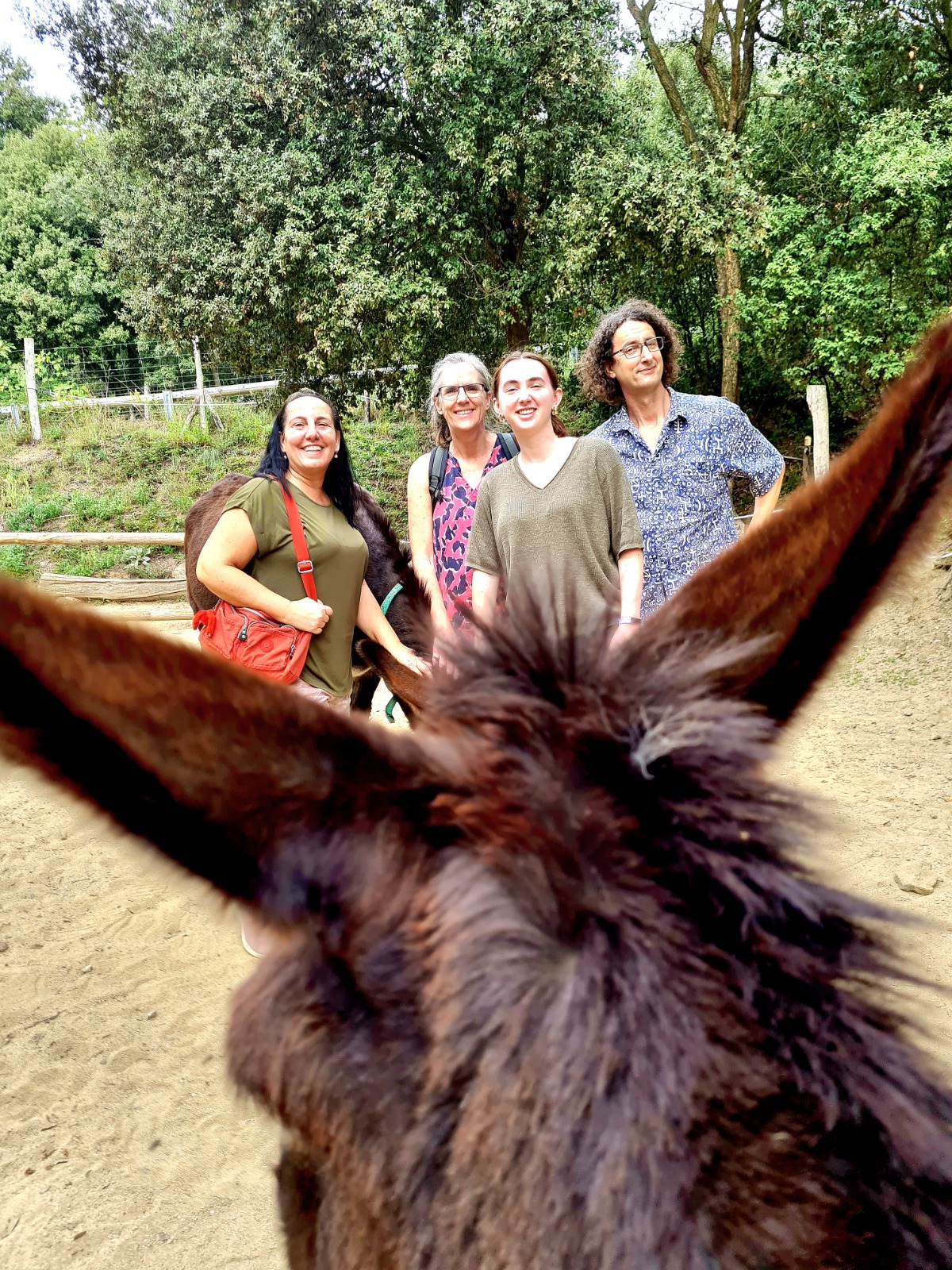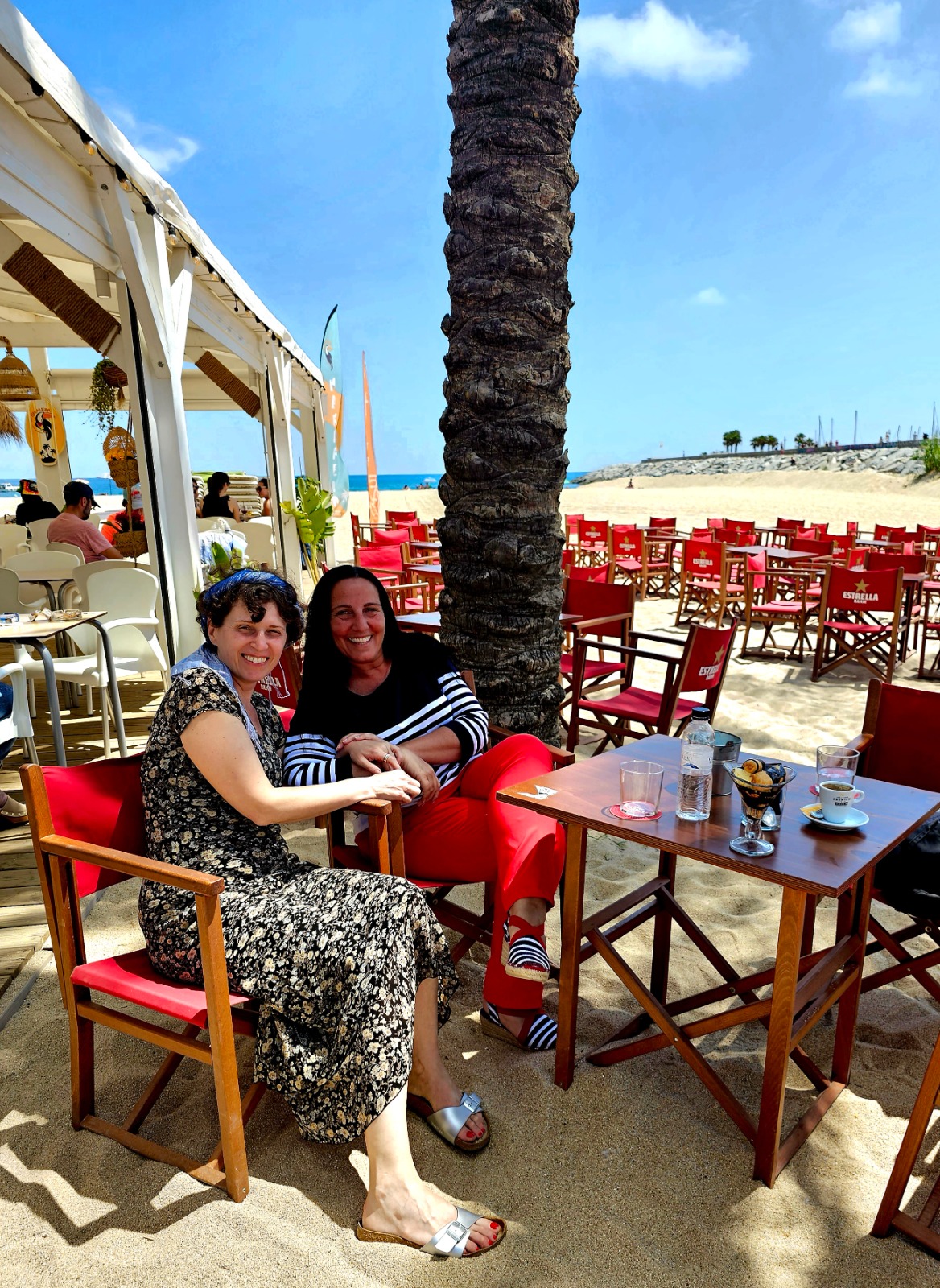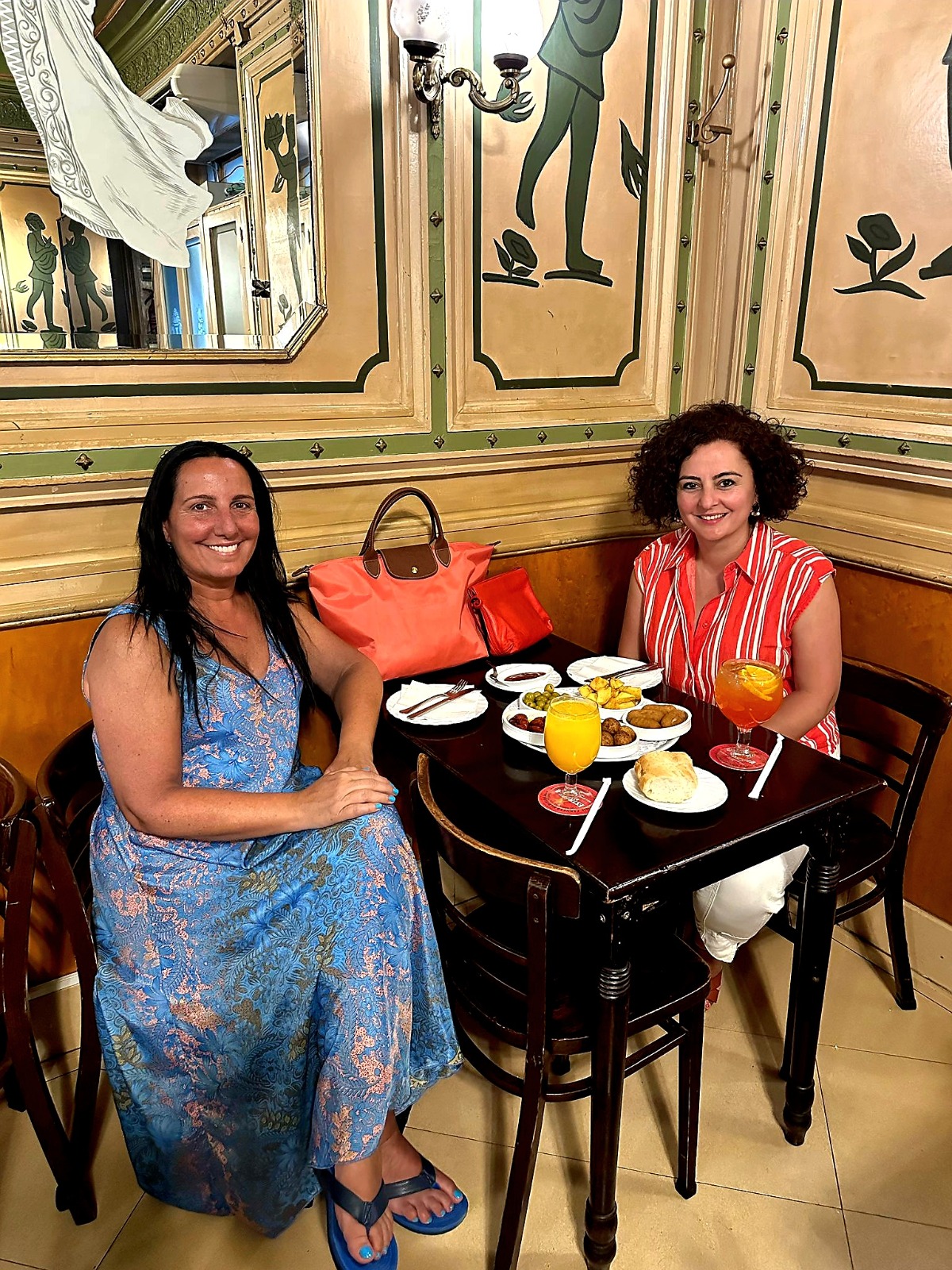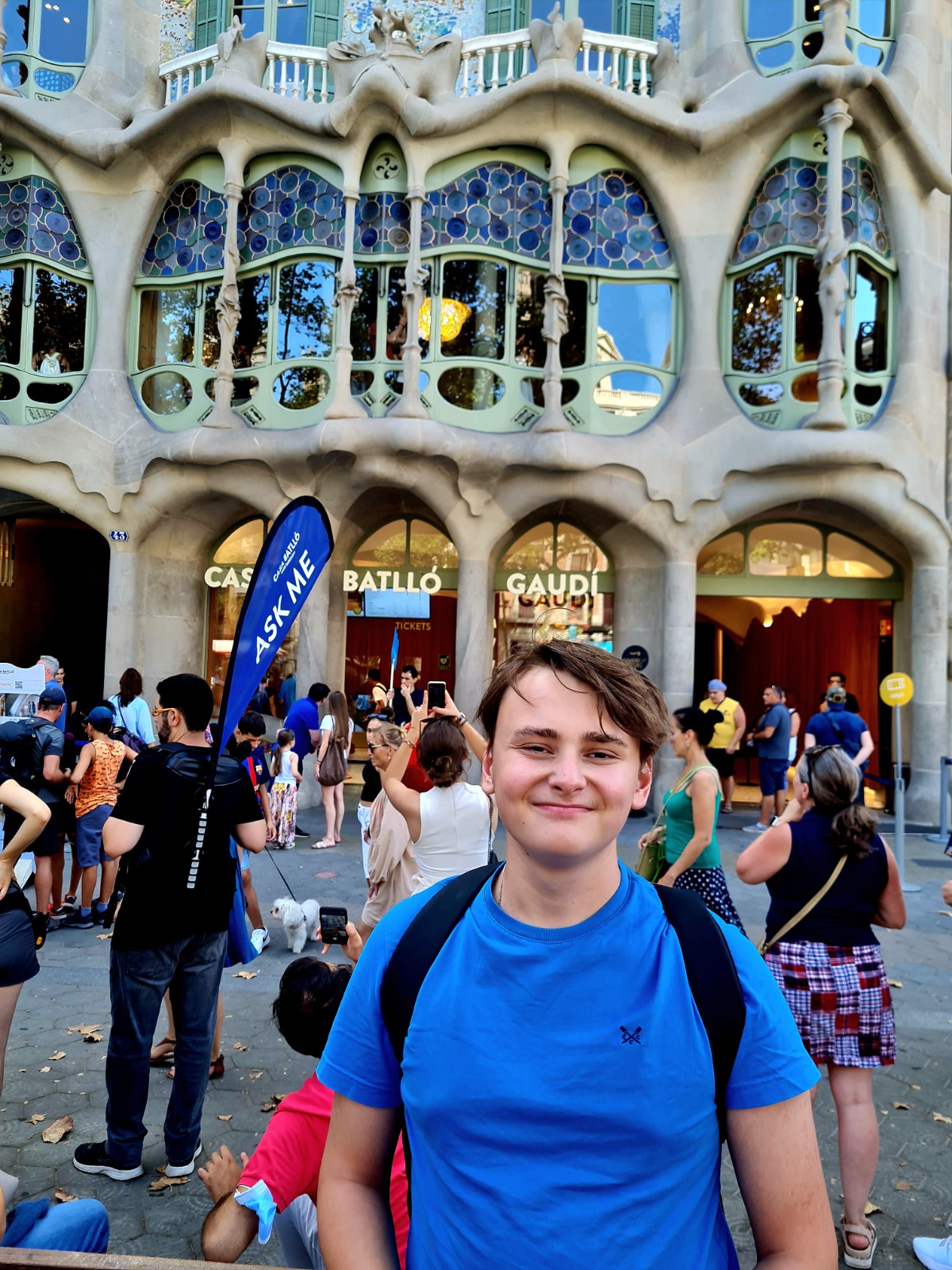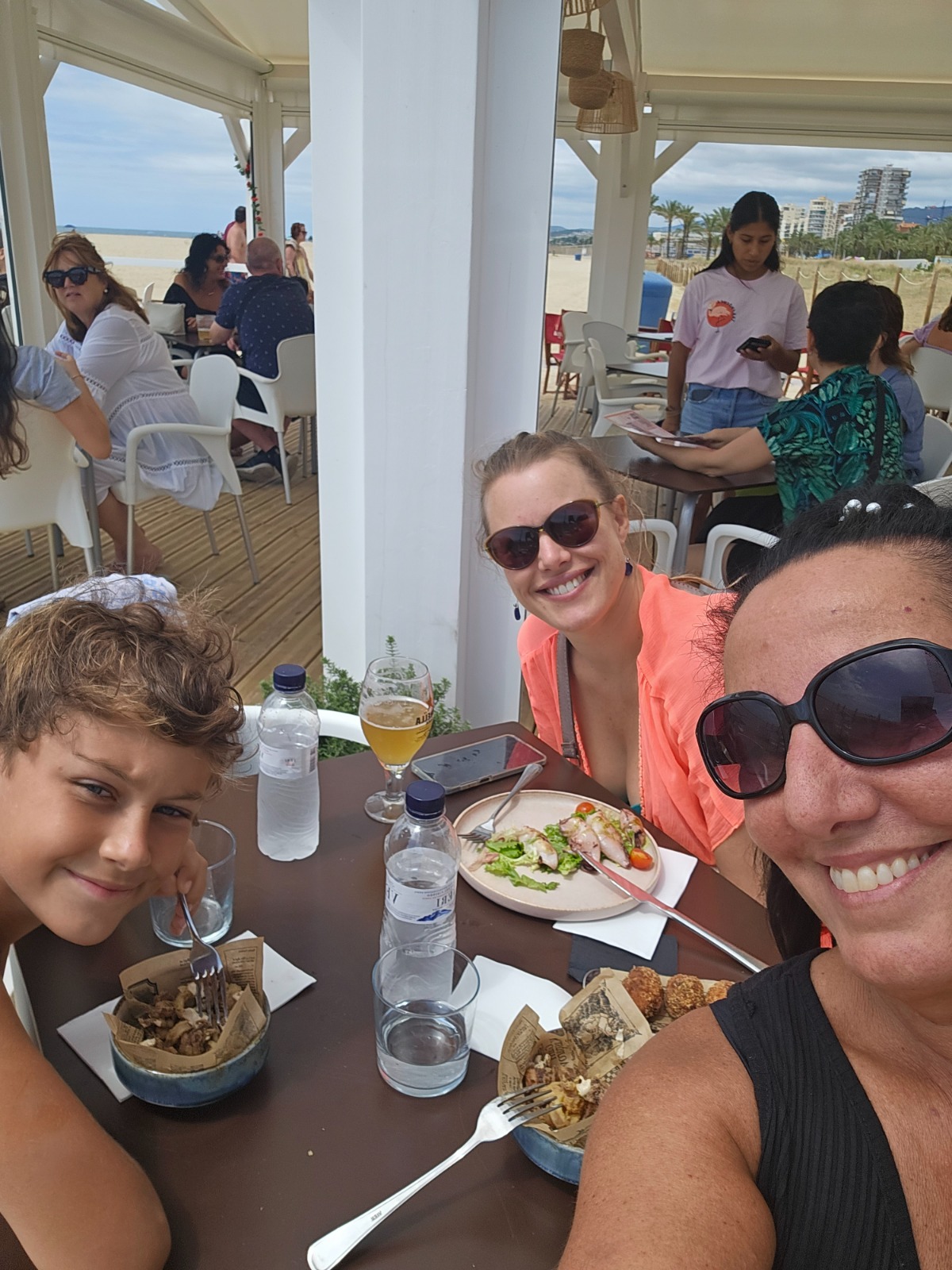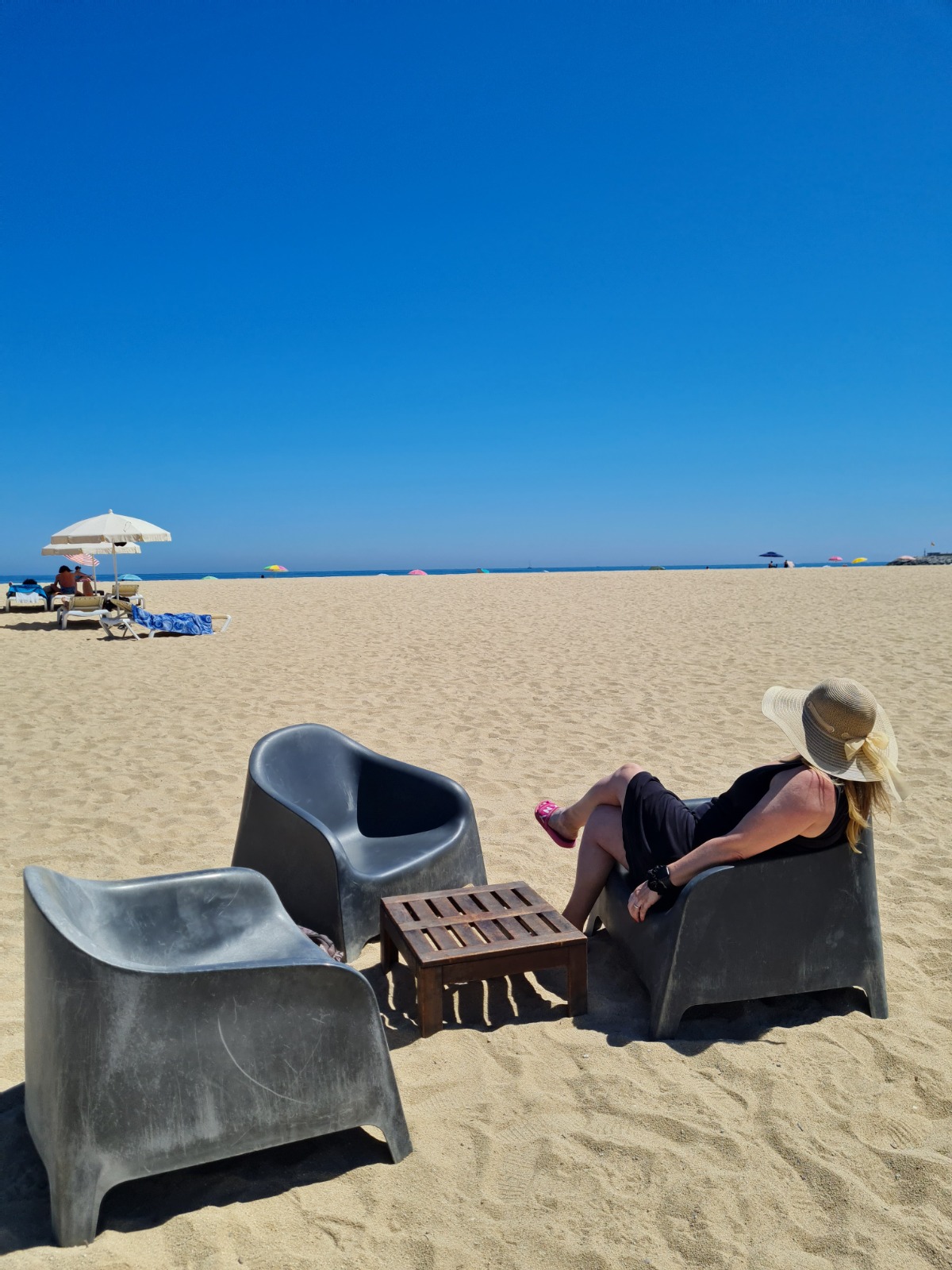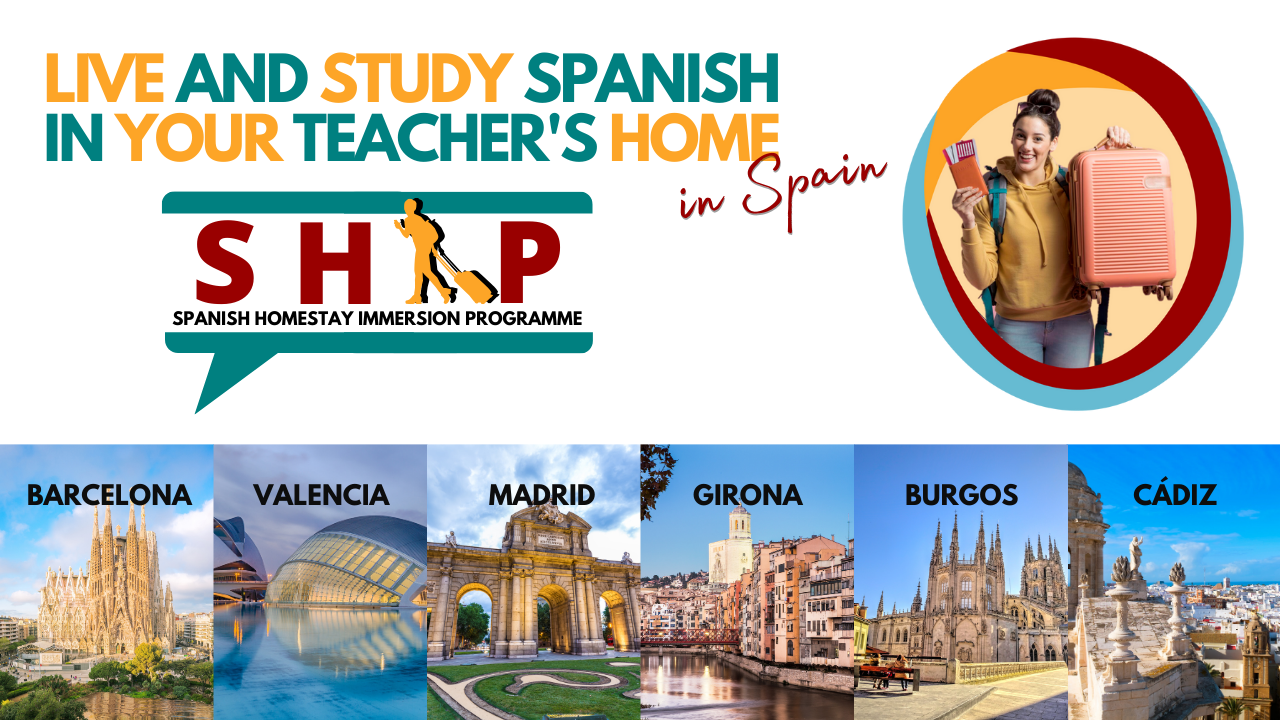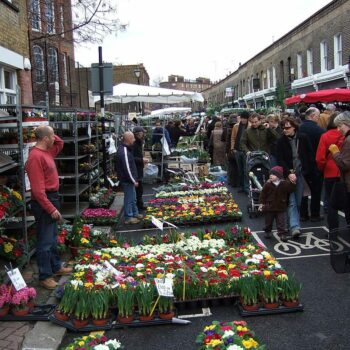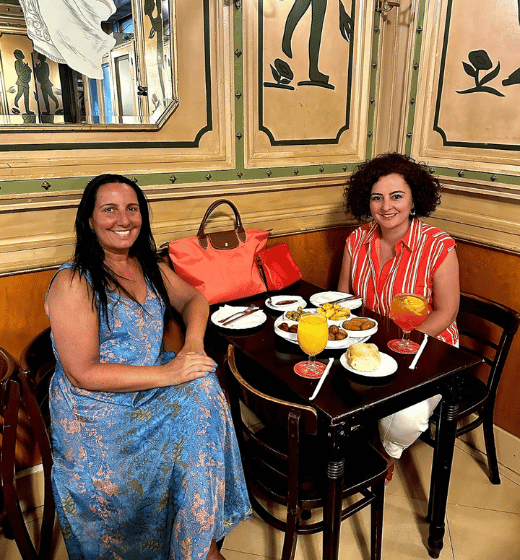

This article has a lot more info about Spanish Immersion in Barcelona than any other piece of content on Google. So, If you are determined to learn Spanish, you have made a decision that is not only important but also very intelligent in the current globalized and interconnected climate of the world.
Spanish is the third most spoken language in the world, after English and Chinese Mandarin. Just imagine how many doors will be opened for you when you learn or improve your Spanish.
A great idea is to start asking questions to yourself about the Spanish language in general. This will help add context to your learning. Below we answer some of the most frequently asked questions.
Is Barcelona a good place to practice Spanish?
Yes, Barcelona is a great place to practice Spanish. While Catalan is the official language, Spanish is widely spoken. You’ll find many opportunities to speak Spanish with locals, whether it’s at a café or a cultural event. Language exchanges and immersion experiences are common, giving you plenty of chances to improve your skills.
Is it better to learn Spanish or Catalan in Barcelona?
It depends on your goals. If you want to connect with a broader Spanish-speaking world, Spanish is the way to go. However, if you’re going to integrate into the local culture of Barcelona or stay long-term in Catalonia, learning Catalan can be beneficial. Both languages are important in the region, but Spanish is more widely used internationally.
Where is the best place to take Spanish lessons in Spain?
Spain has many great places for Spanish lessons, but Barcelona offers a unique experience due to its cosmopolitan atmosphere. There are numerous language schools like Spanish Express and private tutors available. Also, the city’s universities, like Universitat de Barcelona, offer Spanish courses.
What dialect of Spanish do they speak in Barcelona?
In Barcelona, the Spanish spoken is generally standard Castilian Spanish, which is the same as what’s taught in most Spanish language schools. However, you might hear some regional variations in vocabulary and accent. Want to know more about the 4 official languages of Spain? Click here.
Is Barcelona more fun than Madrid?
Fun is subjective. Barcelona offers beaches, a unique blend of modernist and Gothic architecture, and a blend of Catalan and Spanish cultures. Madrid has a more traditional Spanish feel, with grand plazas, museums, and a vibrant nightlife. It comes down to what kind of atmosphere and activities you enjoy more.
Can I work in Barcelona if I don’t speak Spanish?
You can work in Barcelona without speaking Spanish, especially in sectors that operate in English or other languages. However, knowing Spanish will open up more opportunities and make daily life and integration into the community easier. Many institutes in Spain teach corporate-level Spanish and help you perform better at your workplace.
Is Spanish understood in Barcelona?
Yes, Spanish is widely understood and spoken in Barcelona. It’s one of the official languages and is used daily by the majority of the population.
How different is Spanish in Barcelona?
The Spanish spoken in Barcelona is not different from standard Castilian Spanish. While there are some regional words and expressions, it’s the same language spoken throughout Spain.
Is Barcelona the most beautiful city in Spain?
Many people find Barcelona to be one of the most beautiful cities in Spain due to its stunning architecture, picturesque streets, and beautiful beaches. However, beauty is subjective, and Spain has many beautiful cities, each with its unique charm.
Is it OK to speak Spanish in Barcelona?
Yes, it’s perfectly fine to speak Spanish in Barcelona. The city is bilingual, with most locals fluent in both Catalan and Spanish. They appreciate any efforts to communicate, whether in Spanish or with a few phrases in Catalan.
Is Barcelona friendly to English speakers?
Barcelona is a cosmopolitan city and generally friendly to English speakers. Many locals have some understanding of English, especially in areas frequented by tourists. How about learning Spanish while traveling through the beautiful streets of Barcelona? Yes, there is a Spanish school that provides you accommodation inside your Spanish teacher’s home where it becomes easier to communicate with locals in Spanish as well as English. So, while experiencing the mesmerizing beauty of Barcelona, you learn Spanish as well.
How do you say hello in Barcelona?
You can greet someone with “Hola” in both Spanish and Catalan; however, there is a slight difference in the pronunciation of the “o” between the two languages.
Is Catalan very different from Spanish?
Catalan and Spanish are distinct languages. Although there are some similarities, they are not mutually intelligible and have different grammar, vocabulary, and pronunciation.
Can you go to Barcelona without speaking Catalan?
Yes, you can visit Barcelona without speaking Catalan. Spanish is widely spoken, and many locals are bilingual. Learning a few phrases in Catalan can enhance your experience, but it’s not necessary.
How do you say thank you in Barcelona?
To express gratitude, you can use “Gracias” in Spanish, pronounced as [GRAH-see-ahs], or “Gràcies” in Catalan, pronounced as [GRAH-si-ehs].
Is Catalan easy if you know Spanish?
If you know Spanish, you may find some aspects of Catalan easier to learn due to similarities, but it’s still a separate language and requires dedicated study to become proficient.
Is Barcelona friendly to tourists?
Barcelona is known for being tourist-friendly, with a welcoming atmosphere for visitors from around the world.
Do Catalans consider themselves Spanish?
Catalans have a strong regional identity, and while many consider themselves Spanish, there’s a significant number that identify primarily with Catalonia. It varies from person to person.
Is there a lisp in Barcelona?
The so-called “lisp” is characteristic of Castilian Spanish pronunciation, where “c” before “e” or “i” and the letter “z” are pronounced as a “th” sound. It’s present in the Spanish spoken in Barcelona, although Catalan has its own pronunciation rules.
Should I learn Catalan and Spanish at the same time?
Whether you should learn Catalan and Spanish simultaneously depends on your personal goals and the context of your stay in Barcelona. It might be more practical to focus on one language at a time unless you plan to stay long-term.
How long does it take to learn Spanish fully immersed?
The time it takes to learn Spanish through full immersion can vary widely. Typically, a dedicated student can reach a conversational level in a few months. However, achieving fluency can take anywhere from 6 months to a year or more, it all depends on your current level of Spanish. I will suggest you learn Spanish via online tuition first and then experience Spanish Immersion in Barcelona for a week or two to be more fluent in this language.
Can I become fluent in 3 months in Spanish?
Becoming fluent in Spanish in 3 months is a challenge and might not be achievable for most people. However, with intensive courses, a strict study schedule, and constant interaction with Spanish speakers, significant progress can be made toward fluency. Involvement in language exchanges and staying in a student residence with Spanish-speaking peers could accelerate learning.
What’s the quickest you can fluently learn Spanish?
The quickest one can learn Spanish fast and fluently depends on the individual’s dedication and learning environment. Using learning resources like books and games, participating in cultural activities, and taking advantage of every opportunity to speak can expedite the process. Some may see significant results in as little as 6 months with an intensive, structured program.
What is the hardest language to learn?
The hardest language to learn can depend on your native language. For English speakers, languages like Mandarin, Arabic, and Japanese are often cited as the most challenging due to their complex writing systems and grammar. In contrast, Spanish is considered one of the easier languages for English speakers to learn.
Can you become fluent in Spanish without immersion?
Yes, it’s possible to become fluent in Spanish without immersion by using a combination of Spanish lessons, language learning apps, and online resources. Consistency and practice, as well as speaking with native Spanish speakers through virtual language exchanges, can lead to fluency over time. However, Immersing yourself in Spanish makes it quick and effective to be fluent.
Can I learn Spanish in 6 months?
Learning Spanish in 6 months to a competent conversational level is possible with dedication and the right resources. Immersive experiences like living in a teacher’s home, engaging with experienced teachers in daily intensive courses, and consistent practice can greatly enhance language acquisition within this timeframe.
What is the easiest foreign language to learn?
For English speakers, the easiest foreign language to learn is often one that is closely related to English, such as Dutch or Afrikaans. Spanish is also considered one of the easier languages due to its straightforward pronunciation and grammar.
Can Duolingo make you fluent?
While Duolingo can significantly aid in learning a language, it alone may not make a person fluent. Fluency typically requires immersive experiences, practical usage, and interaction with native speakers that go beyond what Duolingo offers. However, it can be a valuable tool in conjunction with other language learning methods.
Can I learn Spanish in 2 months?
Gaining a basic level of Spanish in 2 months is feasible with intensive learning, but reaching fluency would be quite challenging. A focused approach using resources like Spanish games, language school classes, and living in a Spanish-speaking environment like a student residence in Barcelona can lay a solid foundation.
Is immersion the fastest way to learn a language?
Immersion is often considered the fastest way to learn a language because it forces you to use the language constantly and learn from real-life situations. In Barcelona, for instance, immersing yourself in the local culture and using Spanish in everyday activities can significantly expedite learning.
What is the B1 level of Spanish?
The B1 level of Spanish, as defined by the Common European Framework of Reference for Languages (CEFR), is intermediate. It indicates that the learner can handle most travel situations in Spanish, describe experiences, plans, and ambitions, and give reasons for opinions. Achieving this level often involves taking a level test and could include taking the DELE exam at the Instituto Cervantes.
How hard is it to learn Spanish as an English speaker?
For English speakers, Spanish is one of the easier languages to learn due to many shared Latin-based words and straightforward pronunciation rules. However, achieving true fluency still requires significant study and practice, especially in mastering verb conjugations and gendered nouns.
How much are Spanish classes in Barcelona?
The cost of Spanish classes in Barcelona can vary. Prices depend on the school, course intensity, and whether they’re private or group lessons. Language schools in the city center offer competitive prices, and you might find intensive courses or semi-intensive options that can be more economical than private lessons.
How much should I pay for Spanish lessons?
The price for Spanish lessons ranges based on the school’s reputation, the experience level of the teacher, and the type of class (private vs. group). Best language schools in Barcelona might charge more but often provide additional facilities like student relaxation rooms, free WiFi, and cultural activities.
Can I learn Spanish for free in Spain?
Free Spanish lessons in Spain may be available through language exchanges, volunteer programs for teachers, or some community classes. Universities like Barcelona University may offer language resources for foreign students. However, for structured learning, paid courses at a language school are recommended.
Are private Spanish lessons worth it?
Private Spanish lessons are often worth the investment because they offer personalized attention, tailored curriculum, and flexible scheduling. They can be especially beneficial if you’re looking for a customized learning experience or have specific goals, like preparing for the DELE exam.
Is Barcelona costly for students?
Barcelona can be costly for students, but there are many options to manage expenses. Shared apartments, student visas, and afternoon clubs can help reduce living costs. Many schools offer semi-intensive courses which can balance cost and learning efficiency. Living in your teacher’s home in Barcelona is also an economical option where you immerse yourself in local Spanish culture and experience the beauty of Spain.
Is it cheap to study in Barcelona?
Studying in Barcelona isn’t typically cheap, but there are ways to manage costs. Language schools like Spanish Express offer various courses that can fit different budgets, and many cultural activities can be enjoyed for free or at a low cost. Additionally, some student residence options offer competitive prices.
Is it free to study in Barcelona?
Studying in Barcelona is not generally free, especially for international students. However, there might be scholarships or grants available, and some language schools might offer free introductory courses or cultural exchanges.
Is there a free course to learn Spanish?
There are free online resources to learn Spanish, and some language schools or community organizations may offer free courses. However, for an immersive experience, enrolling in a paid course at a language school in Barcelona can provide a more structured and in-depth learning experience.
What is the best language course for Spanish?
The best language course for Spanish depends on individual learning styles and goals. Schools like Spanish Express in Barcelona are highly rated and offer a range of options from intensive courses to fun activities and even weekend trips and excursions, providing an immersive learning experience.
What is the cheapest tuition fee in Spain?
The cheapest tuition fees in Spain can be found at public universities or community language schools. Private institutions and language schools like those in the Eixample district of Barcelona might charge more but also offer smaller classes and additional resources.
Is Barcelona expensive for a holiday?
Barcelona can be expensive for a holiday, but it also offers options for all budgets. The city center is filled with affordable accommodations, and there are plenty of free cultural events, cooking classes, and walking tours that can be enjoyed without spending much.
How much is English spoken in Barcelona?
English is widely spoken in tourist areas of Barcelona and by many locals, especially younger generations and professionals. However, knowing some Spanish or Catalan can enrich the experience and help in less tourist-centric parts of the city.
Is speaking “Spanish” the same as speaking “Castilian”?
This is a matter that has generated analysis and confrontations between many experts. The conclusion of the debate is that both terms are valid. None of the two is incorrect, but the most common way to say it is to speak “Spanish”.
To understand a little, we share the concept of the Panhispanic dictionary of doubts, approved by the Association of Academies of the Spanish language that gives us a more precise and fair synthesis on this matter:
Spanish. To designate the common language of Spain and of many nations of America and that also is spoken as own in other parts of the world, the Castilian and Spanish are terms both valid.
The polemic on which of these denominations does it turn out to be more appropriate is overcome today. The term Spanish turns out to be more advisable for lacking ambiguity since it refers in a univocal way to the language that more than four hundred million persons speak today.
Also, it is the denomination that is used internationally (Spanish, Espagnol, Spanisch, Spagnolo, etc.). Even being also synonymous with Spanish, it turns out to be preferable to reserve the term Castilian to refer to the Romanesque dialect born in the Kingdom of Castile during the Middle Age, or to the dialect of the Spanish which is spoken nowadays in this region.
In Spain, the Castilian name is used also when it alludes to the common language of the State regarding other co-official languages in its respective autonomous territories, like the Catalan, the Galician, or the Basque.
Does standard Spanish exist?
Many variations of the Spanish language exist in accordance with the place in which one speaks, but the fundamental structure is the same. There is none better than the other one. Spanish in Spain isn’t the standard, not because it is the place of origin of the Spanish language, not for being the one used by the majority, not because is the one that fulfills all the “rules”.
Our language is wonderful and rich exactly for its diversity. The vocabulary variety is enormous; there are different words in every region and also different meanings for the same word. Try and learn Spanish words from different parts of the world to further your understanding and learning of the language!
In what countries Spanish is spoken?
We already know that it is a question of general knowledge, but what if you change it into a more inspiring one as ‘What countries will I be able to visit during my holidays to practise my Spanish?’
Spanish is the official language of Spain in Europe, of Equatorial Guinea in Africa, and of 19 countries in the Americas, such as Argentina, Bolivia, Chile, Colombia, Costa Rica, Cuba, Dominican Republic, Ecuador, El Salvador, Guatemala, Honduras, Mexico, Nicaragua, Panama, Paraguay, Peru, Uruguay, Venezuela, and Puerto Rico.
Spanish is also spoken in a considerable way in other countries, where it is not the official language, such as the United States, Belize, Andorra, and Gibraltar.
What do you think? You already have a variety of destinations as an option for your holidays for many years. Isn’t it fantastic?
Why some other languages are similar to Spanish?
Because Spanish is part of a family of languages called Latin or Romance, to which also belong French, Italian, Portuguese and Romanian. They all have some similar characteristics in grammatical structure and vocabulary.
That’s why you may have heard something familiar in:
- The lyrics of a French song perhaps (the vie in rose/la vida en rosa)
- An ingredient or an Italian plate that you could pronounce easily (torta di ciocolatto/torta de chocolate)
- The title of a movie in Portuguese that you could understand (Um Amor of Perdição/Un amor de perdición)
- A Romanian newspaper in which you identify written words almost equally to Spanish (Ultima Õra/Última hour).
These languages are also known as Romanesque languages and they developed from spoken Latin, from about the VIIth century a.c. in southern and Western Europe.
Now that you already know slightly more about the wonderful world of Spanish, you have more reasons to learn it and to be sure of having made the best decision.
Know all the possibilities that Spanish Express offers you to study Spanish according to your needs and your goals.
Experience Spanish Immersion in Barcelona with Spanish Express
If you are looking for a plan that offers you a complete and unforgettable experience to practice your Spanish or Castillian while you travel, look for our full immersion programme: Live and study at your teacher’s home!




